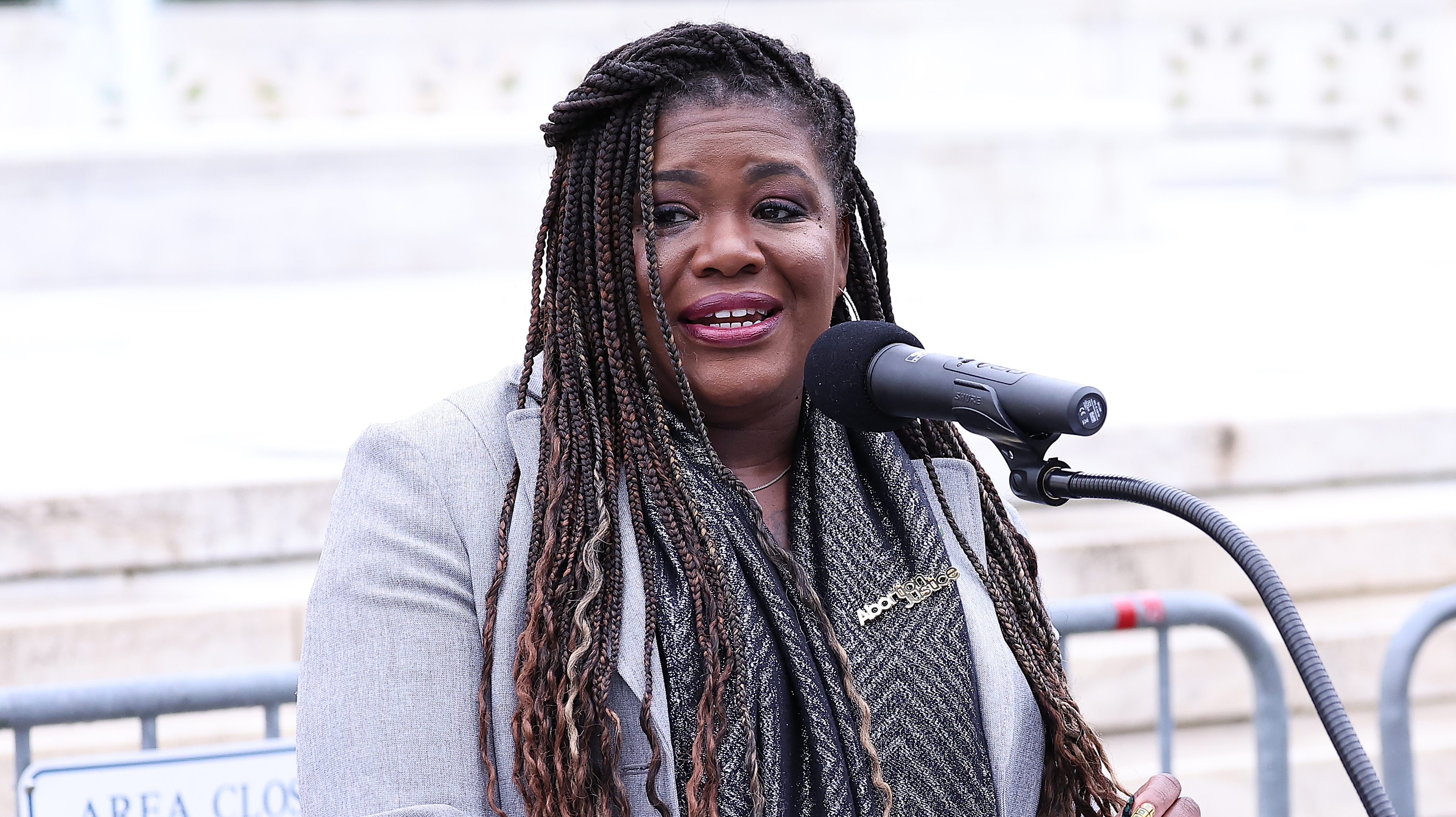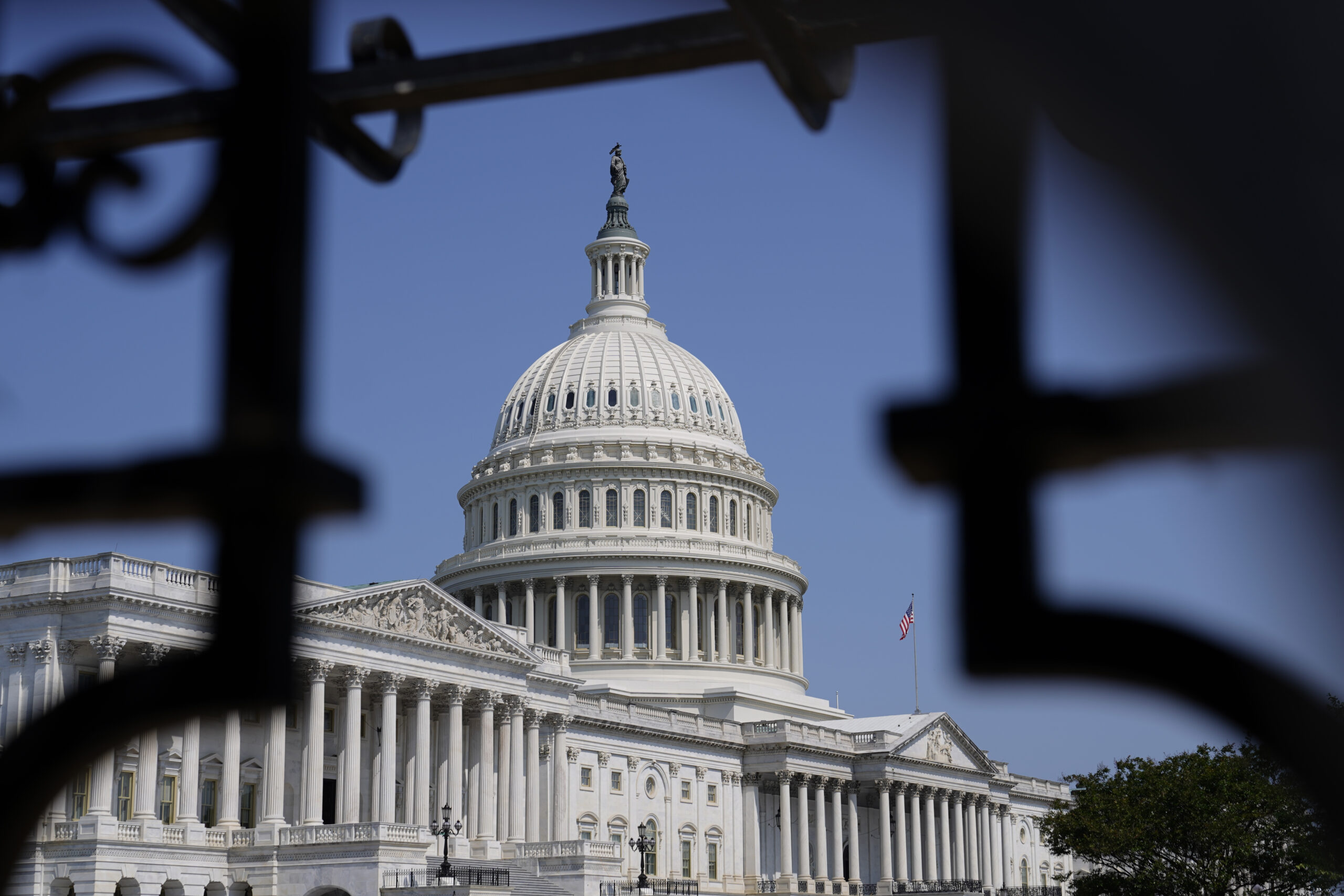“This practice is traumatic for people subjected to it, harmful to communities…it is disproportionately inflicted on Black and brown folks,” said Congresswoman Cori Bush, D-Mo.
Members of Congress are pushing legislation to end the practice of solitary confinement which disproportionately impacts Black and brown incarcerated individuals.
Last month, Rep. Cori Bush, D-Mo., alongside her colleagues Reps. Jamaal Bowman, D-N.Y., Sydney Kamlager-Dove, D-Calif., and Rashida Tlaib, D-Mich., introduced legislation to ban the punishment in federal prisons and jails.
The proposed statute also aims to put in place due process protections for individuals for whom solitary confinement may be the only option and incentivize states to adopt similar legislation on the local level.
Bush called the practice of placing incarcerated people in solitary confinement a “moral catastrophe.”
“UN experts have condemned solitary as psychological torture —that’s exactly what it is,” said Bush.
She added, “This practice is traumatic for people subjected to it, harmful to communities…it is disproportionately inflicted on Black and brown folks, young people, LGBTQ+ people, and other marginalized communities.”
Tammie Gregg, deputy director for the ACLU’s National Prison Project, echoed Bush’s statement and told theGrio that lockdown needs eradication.
“If we look at the demographics of who is incarcerated, it certainly is disproportionately Black and brown people and particularly men in this country,” said Gregg.
She added, “They are also more often subjected to the punishment of solitary confinement.”
Tammie said more often than not, incarcerated people who are placed in isolation usually commit petty violations that do not fit the punishment.
“It’s something as small as talking back to a correctional official or if they’re sick, refusing to go to work or come out of their cell,” she said.

She added, “Having something that’s considered contraband” could also land an incarcerated individual in the hole.
For instance, Gregg told theGrio, “if you’re allowed to have ten sheets of paper to write a letter and two pens and you’re found to have 15 sheets of paper and three pens,” some prison officials consider the violation worthy of isolation.
Gregg argues that, “Putting somebody in solitary confinement where you’re deprived of sensory stimulation and where your mind can deteriorate is not equivalent to the punishment that you might otherwise get for violating a rule.”
In a statement obtained by theGrio, Congressman Bowman said the form of imprisonment “has no place in America.”
“Merciless practices like solitary confinement directly target marginalized groups–including people of color,” he added.
“We must end this form of cruel and traumatic punishment for everyone,” said Bowman.
Rep. Kamlager-Dove also condemned the practice of solitary confinement and said in a statement that this heinous practice, “would be categorized as human rights violations in any other context in any other country.”

“If we want incarcerated individuals to leave the system rehabilitated and truly decrease recidivism, we must treat the incarcerated like people first,” she added.
Gregg told theGrio that solitary confinement is “inhumane” and has devastating impacts on incarcerated people.
“It causes deterioration very quickly of neurological functioning and among other things,” she said.
“It can cause an increase in suicidal ideation and self-harm,” she added.
Although Gregg backs Bush’s legislation, she believes “It’s going to take some time to get this across the finish line.”
TheGrio is FREE on your TV via Apple TV, Amazon Fire, Roku and Android TV. Also, please download theGrio mobile apps today!
The post Congress members introduce legislation to end solitary confinement appeared first on TheGrio.

